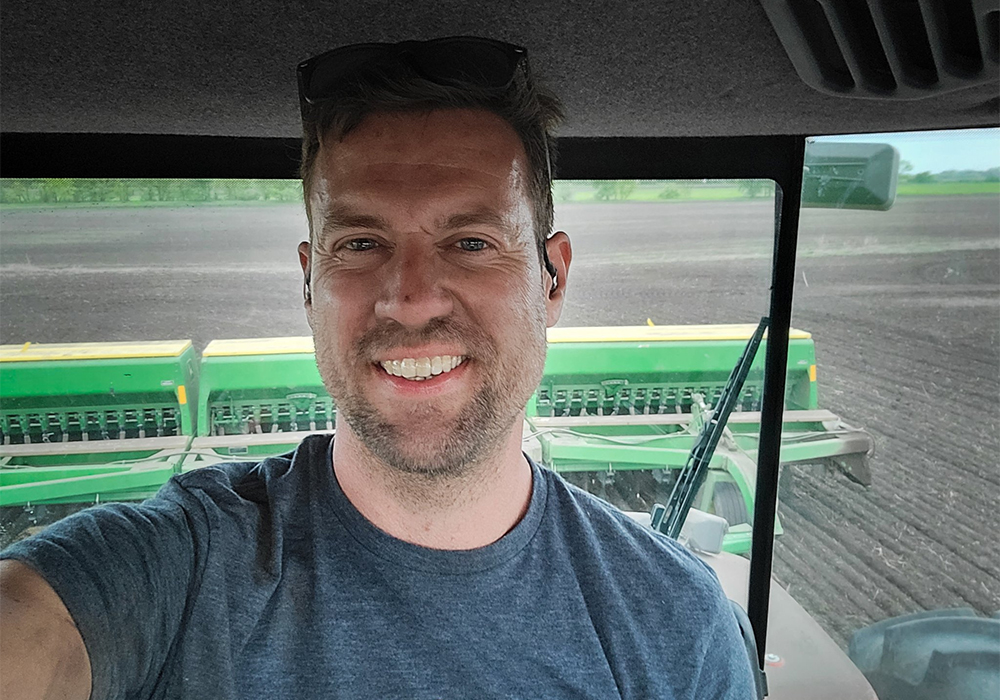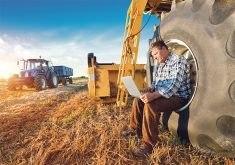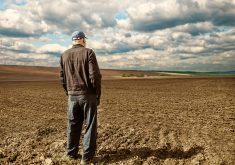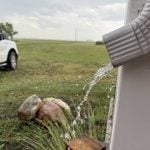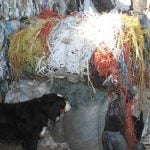On April 26, a thief or thieves smashed my rear window and grabbed my backpack. They likely had no idea there was about $10,000 worth of camera gear inside of it.
I should have known better and I was thankful for insurance, but the disruption caught me off guard and pushed me into a state of scramble, a state I remained in throughout the seeding season.
Our seeding season concluded June 9, with a 120-acre parcel of barley.
This spring has been one to reconcile. It was too muddy, too snowy and too cold to even think about getting the machinery ready for the growing season until the moment we needed to be on the field.
The morning after all of our crops were planted, I took stock of things: our lawn was tall and full of dandelions (it was often too wet or we were too busy to mow); some of our machines still hadn’t been properly serviced; my back-up sump-pump is the only one working and it’s dumping water close to our house, only to find its way back to the basement, I’m guessing; and the amount of off-farm work I have to do is a mountain on my desk.
I am not fishing for your sympathy. I do, however, believe that you may have experienced a similar spring and that talking about it may not be such a bad thing.
The world has become a different sort of puzzle and it’s been a challenge finding the edge pieces to properly frame it out. There used to be foundational economic elements to farming that were hard to understand, but seemed to follow basic and intuitive principles. Now, either all those metrics are irrational or I need to forget what I thought I knew about the economy and start fresh.
I have purchased new camera gear and I am now equipped with lenses that I can grow into. Soon, perhaps later today, I will begin getting ahead of the lawn, maintaining the machines and free climbing that mountain of work that sits between me and mental clarity.
Pandemic restrictions have been lifted in most places and we’re now faced with the challenge of finding a way to get along, do business, or sit at the supper table with those whose attitudes about liberty, vaccines, masks or government are diametrically opposed to yours.
On this challenge, I’m open to suggestions. I don’t have any solutions.
Like any policy worth its salt, I feel compelled to evaluate this spring, this seeding season and find ways to learn from the mistakes I have made in managing my time, in communicating with others and in navigating relationships during the heat of COVID.
As I write this, I know there are many farmers still in the throes of their seeding seasons. For some, the time for taking stock may only come after spraying, after reseeding beetle-ravaged canola or other crops that were too weak to break through the crusts that formed on our soils following the rains.
It’s been a scramble for many farmers, even the most experienced. To reconcile an entire season during which every day was a battle against the urge to be overly negative will be a process that will take time.
Perhaps one day, we’ll credit having survived such a bewildering period of time with having made us stronger, smarter and more empathetic. Perhaps, next time a season like this looms, I’ll be able to read the signs a bit more clearly and I’ll make sure the machines are better prepared to tackle a lot of work in a short period of time.
If you want to ask me about photos, reach out, I am once again equipped and willing. That is, once I tackle my lawn, the weeds on my lawn and reduce that mountain of work into a manageable mole hill.
P.S. I have since travelled with my camera gear and, so far, where I go, my backpack also goes (it’s huge and cumbersome, but I am not yet ready to leave it out-of-sight).
Stay safe. Get done. Take care of yourselves.
Toban Dyck farms in southern Manitoba and shares his thoughts through media platforms.

